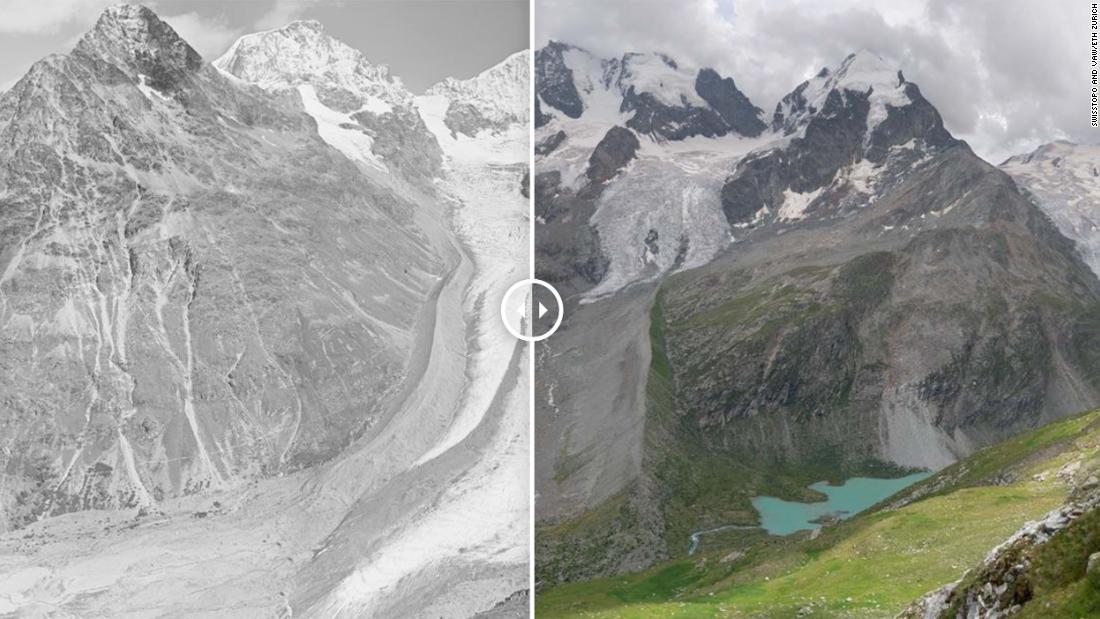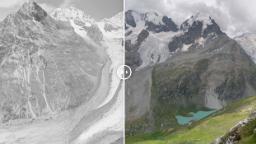

For the first time, researchers have used historical imagery to reconstruct a visual timeline of Switzerland’s glaciers, which they found lost half of their volume between 1931 and 2016. In the past six year’s alone, they lost another 12% of their volume.
And in the 85 years ending in 2016, Switzerland’s glaciers lost an area the size of Manhattan every ten years.
The before-and-after imagery is stunning.
Given the record-high temperatures that enveloped vast swaths of the Northern Hemisphere this summer, Daniel Farinotti, a glaciologist and co-author of the study, told CNN that he expects this year’s glacier loss will be the worst.
“The year 2022 is extreme — not only have we had a very snow-poor winter, we also had an extremely warm summer, and this combination is truly the worst case,” Farinotti said. “We expect this year’s losses to be larger than the ones experienced in 2003, which so far was the ‘record year,’ in the negative sense, for glacier mass loss.”
Glacier loss causes ecoystem loss across plants and animals. It also affects the landscape’s appearance and impacts local tourism. And, importantly, glaciers are a critical source of fresh water for drinking and agriculture that disappears as the ice recedes.
“If glaciers were to disappear entirely, various regions might face issues related to water supplies — especially during summers such as we have had and are still having this year,” said Farinotti.
Farinotti said researchers expect to see another 60% loss in glacier mass by the end of the century — even if the world meets the climate targets set by the 2015 Paris Agreement.
“If climate change were to continue unabated, we might well find ourselves with European Alps that are virtually ice-free,” Farinotti warned.
